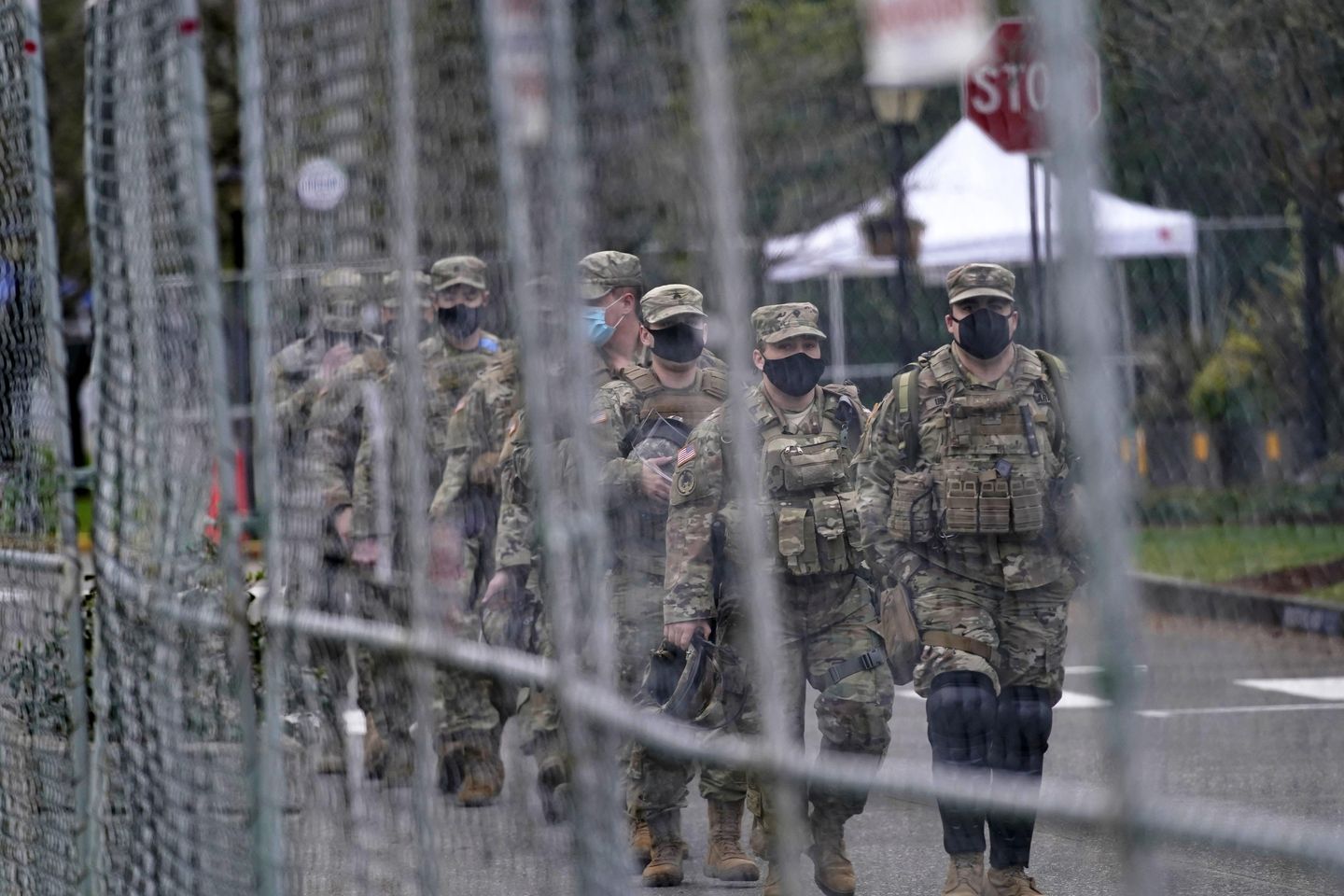

Defense Secretary Lloyd Austin will have sole authority to approve requests for the emergency use of the D.C. National Guard, under a streamlined process following the Jan. 6 riots, when a pro-Trump swept aside police and stormed the U.S. Capitol.
The change is intended to make the Pentagon better prepared to handle urgent requests for law enforcement support by local authorities. The authority previously had been given to the Army secretary, the service’s top civilian official.
The Department of Defense was accused of slow-walking local requests to send in the D.C. National Guard to help local police agencies clear out the protesters swarming the Capitol on Jan. 6. While Maj. Gen. William Walker, then the commander of the D.C. guard said he had troops ready, he said it took more than three hours before the Pentagon approved the request.
<!– Temp removal of in article reco
End comment –>
“By clarifying and refining the request process, including outlining the required information needed to assess requests from federal and local partners, the Department (of Defense) will be able to respond to requests efficiently, quickly and effectively,” chief Pentagon spokesman John Kirby said in a statement Thursday.
The new policy comes after Mr. Austin directed the Pentagon’s acting assistant secretary for Homeland Defense and Global Strategy to lead a review of how the Department of Defense handles requests for support in the Washington area, known as the National Capital Region.
The use of National Guard troops in the nation’s capital is complicated by the fact that the usual chain of command headed by a governor does not apply because the district is not a state. Thus, the commanding general of the D.C. Guard reports to the president, although a 1969 executive order delegated control to the secretary of defense, who subsequently further delegated the authority to the Army secretary.
The changes essentially cross out that executive order.
The Defense Department will continue to work with local and federal agencies in the area to improve planning for scheduled and emerging events, Mr. Kirby said.
• This article is based in part on wire-service reports.
